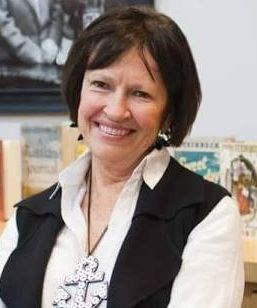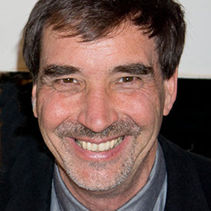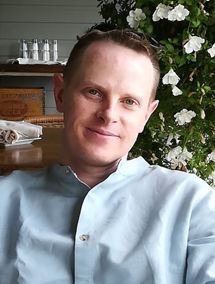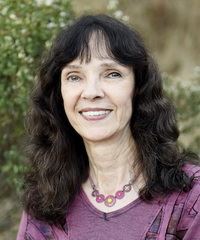 37th Annual Asilomar Conference - February 16 – 19, 2024
37th Annual Asilomar Conference - February 16 – 19, 2024
You can register with us anytime. After you register you will receive information about reserving room and meals with the PBK group. We are committed to 45 full room/meal reservations.
The goal of liberal education is to understand the world in all its complexities, to challenge us and yes… to make us uncomfortable from time to time. – Fred Lawrence, General Secretary, PBK Society
Once again, the antidote to news of fires, floods, fights and criminality – a new season for the PBKNCA Asilomar Conference in the Spring! It is again time to reserve your space for a fresh weekend of learning, inspiration, fellowship and a breath of sanity, on the magnificent Monterey coast! Past participants describe the weekend as “the best aspects of college, without the exams” and “the greatest high of the year – without drugs!”
If you have questions on this year’s program, please contact dfrontczak@scu.edu. For registration or logistics matters, please contact Barry Haskell at bghaskell@comcast.net. Registration is $150 (member rate), which goes in part to scholarships. Lodging cost will be similar to last year, about $650 per person, double occupancy, and includes all nine meals and parking. All registered participants will receive forms to reserve their Asilomar accommodations, including meals; please check your email. (Remember, to be part of the PBKNCA package, do not reserve directly with the facility.)
Please join us once again for the annual Asilomar Conference, where we gather to learn, engage in discussions, and to listen to one another in new ways. Speakers are still being confirmed and there may be some rearrangement depending on their schedules; a sneak peek at what’s planned for 2024:
Friday night: Brant Robertson, Ph.D., PBK. Astrophysics, U.C. Santa Cruz
Exploring the Most Distant Reaches of the Universe with James Webb Space Telescope

In December 2021, NASA launched the James Webb Space Telescope (JWST), the most powerful telescope ever put into space. Prof. Brant Robertson of UC Santa Cruz has been a leader in efforts to use JWST to study the early cosmos with remarkable success, including the discovery of the most distant galaxy known in the universe. In this presentation, Prof. Robertson will share the newest discoveries with JWST and reveal how scientists find and study the faintest and most objects in the sky.
Dr. Robertson is a Professor of Astronomy and Astrophysics at University of California, Santa Cruz. He previously held the Maureen and John Hendricks Visiting Professorship at the Institute for Advanced Study in Princeton NJ, an Assistant Professorship in Astronomy at University of Arizona, and a Hubble Fellowship at Caltech. Dr. Robertson also held a Spitzer and Institute Fellowship at the Kavli Institute for Cosmological Physics and the Enrico Fermi Institute at the University of Chicago. He earned his doctorate in Astronomy at Harvard University and a BS from University of Washington with a double major in Physics and Astronomy. He studies theoretical astrophysics, mainly through computational means, and works in the scientific areas of galaxy formation and evolution. His research has been featured in the television programs 60 Minutes and COSMOS and has been covered by news media including TIME Magazine, the Washington Post, FOX News, and the BBC.
Saturday Morning: Susan Shillinglaw, Ph.D., San Jose State University
John Steinbeck and the Land, People and History of California

John Steinbeck’s many books—including classics like The Grapes of Wrath, East of Eden and Of Mice and Men—continue to resonate in classrooms across the country.
Susan Shillinglaw, Professor of English, Emerita, San Jose State University, has focused on Steinbeck's work for over thirty-five years of teaching, research, and outreach. For eighteen years she was Director of the SJSU Steinbeck Center and for three Director of the National Steinbeck Center in Salinas.
She has worked extensively with her husband, a marine biologist, to create courses that integrate science and the humanities; they have co-directed several NEH Steinbeck Institutes for high school teachers that “bridge the gap between art and science” for today’s students and scholars. “We needn’t see the humanities and sciences as separate ways of thinking, but rather integrate the written word with science, because science is a narrative. A lot of scientific endeavors are stories about where you start, where you end up, what happens and how it impacts us and changes our understanding of the world.”
Dr. Shillinglaw earned her B.A. from Cornell College and M.A. / Ph.D. degrees from the University of North Carolina at Chapel Hill. Her scholarly work includes several edited books and scholarly essays; five introductions for Penguin Classics; and three books: A Journey Into Steinbeck’s California (2006, 2011,2019 ), a biography of Steinbeck’s first marriage, to San Jose native Carol Henning, John and Carol Steinbeck: Portrait of a Marriage (2013), and On Reading The Grapes of Wrath (Penguin, 2014). She is currently completing a book on Steinbeck's landscapes. These projects have challenged her to write for a broad audience, and she notes that “Steinbeck endures because he does not permit readers to complacently dig in, like the hermit crab. He embraces the fullness of life. With compassion, tolerance, and humility, he surveys landscapes: of place, of spirit, of a nation.”
Saturday Afternoon: William J. Clancey, PBK, Ph.D. (Computer Science), Stanford / I.H.M.C.
Working on Mars: Voyages of Scientific Discovery with the Mars Exploration Rovers.
 My presentation is based on my ethnographic study of the scientists at JPL and comparison to my observations of some of the same scientists in a “Mars analog” setting on Devon Island in the Canadian Arctic.
My presentation is based on my ethnographic study of the scientists at JPL and comparison to my observations of some of the same scientists in a “Mars analog” setting on Devon Island in the Canadian Arctic.
Besides some basic facts about how the rovers are operated every day by transmitting programs from Pasadena, I cover topics such as the collaboration between scientists and engineers, the importance of aesthetic photography in the scientific work, how the scientists project themselves into the body of the rover so they can imagine where to look and what to do on the surface, and why the personification of the rovers (e.g., in Science, phrases such as “Opportunity explored…”) is part of the construction of scientific objectivity.
Dr. William J. Clancey is a computer scientist whose research relates cognitive and social science in the study of work practices and the design of agent systems. He received a Ph.D. in Computer Science at Stanford University and Mathematical Sciences B.A. at Rice University (ΦBK, 1974). He has developed artificial intelligence applications for medicine, education, finance, robotics, and spaceflight systems. At the Institute for Research on Learning he co-developed ethnographic methods for modeling work systems. At NASA Ames Research Center as Chief Scientist of Human-Centered Computing, Intelligent Systems Division (1998-2013), his team automated file management between Mission Control and the International Space Station, receiving Johnson Space Center’s Exceptional Software Award. He is a Fellow of the American College of Medical Informatics, Association for Psychological Science, Association for Advancement of AI, National Academy of Inventors, and American Association for the Advancement of Science. His book Working on Mars: Voyages of Scientific Discovery with the Mars Exploration Rovers received the AIAA 2014 Gardner-Lasser Aerospace History Literature Award.
Saturday night: Jennifer King, Ph.D., Stanford
After AI – Will Privacy Exist? What must we do to preserve it?

AI is advancing rapidly and changing the world as it does so. Privacy is no exception – AI systems tend to be data-centric, relying on vast quantities of data to train them, motivating companies to collect ever greater amounts and types of data. Generative AI systems, such as ChatGPT, build data sets by scraping websites across the internet. In doing so, they may include private or identifiable information, in their catch. What are the implications for our personal and informational privacy? What regulatory mechanisms will make a difference, and what systemic changes might be needed? And can our democratic systems withstand the authoritarian threats that these technologies can enable?
Dr. King is the Privacy and Data Policy Fellow at the Stanford University Institute for Human-Centered Artificial Intelligence. An information scientist by training, Dr. King is a recognized expert and scholar in information privacy. Sitting at the intersection of human-computer interaction, law, and the social sciences, her research examines the public’s understanding and expectations of online privacy as well as the policy implications of emerging technologies. Her past work includes projects focusing on social media, genetic privacy, mobile application platforms, the Internet of Things (IoT), and digital surveillance. Her scholarship has been recognized for its impact on policymaking by the Future of Privacy Forum, and she has been an invited speaker before the Federal Trade Commission. She has been featured in numerous publications and outlets, including The New York Times, The Washington Post, National Public Radio, CNBC, Bloomberg, CNET and MIT Technology Review, among others.
Dr. King completed her Ph.D. and M.S. degrees in Information Management and Systems at the University of California, Berkeley School of Information. Prior to joining HAI, Dr. King was the Director of Consumer Privacy at the Center for Internet and Society at Stanford Law school from 2018 to 2020, and before entering academia she worked in security and iproduct management for several Internet companies, most notably Yahoo!.
Sunday morning: Michael Dylan Foster, Ph.D., PBK, U.C. Davis
East Asian Languages and Cultures:
“The Persistence of the Kappa and Other Creatures of Japanese Folklore”

This talk introduces a panoply of Japanese folkloric creatures, often called yōkai. I start with the kappa, a river imp found in legends and folktales throughout the Japanese archipelago. Although there are references to kappa-like beings in texts from over a thousand years ago, today this water goblin is more common than ever, infesting popular culture formats such as anime and video games. The kappa survives because of its mutability, its ability to adapt itself to the concerns of the given historical moment.
Folkloric creatures like these are often dismissed as trivial or childish, but their persistence in the cultural imagination suggests that they actually reveal a great deal about how humans grapple with a complex and changing world.
Dr. Foster is a professor in the Department of East Asian Languages and Cultures at the University of California, Davis, and the recipient of a PBKNCA Teaching Excellence Award (2023). He teaches classes on Japanese folklore, heritage, tourism, and popular culture, and is the author of The Book of Yōkai: Mysterious Creatures of Japanese Folklore; Pandemonium and Parade: Japanese Monsters and the Culture of Yōkai; and articles and reviews. Since 2022, he has served as the “Yōkai Navigator” for a television series about Japanese folkloric creatures on NHK World.
Sunday afternoon: Robert Shanklin, Ph.D., PBK, Santa Clara University, Philosophy
Toward a 21st Century Global Pragmatism

Pragmatism is one of many indigenous American philosophical traditions. Its heyday was roughly the 1890s to 1950s, though it continues to be studied and taught today. Pragmatism can be distinguished from other philosophical traditions more by its methods than its tenets. Pragmatism tends to eschew the "first principles" often favored by canonical European philosophers and philosophies, such as the Utilitarian principle of maximizing utility, or Kant’s Categorical Imperative. To that point, Cornel West’s influential book on pragmatism is subtitled "America's Evasion of Philosophy." Pragmatism tends to focus more on processes or methods for addressing pressing practical problems, from ethics to education to scientific language and processes. I argue that, in a number of areas of applied ethics, when we are “doing it right” we are actually employing a form of pragmatism. That is to say: much of our best teaching, writing, and consulting in these fields is pragmatist, though rarely acknowledged as such. I am to show why that is so, and then to start articulating a modern pragmatism that would make sense in an increasingly globalized and interconnected world.
Dr. Shanklin is Senior Lecturer in the Philosophy Department at Santa Clara University. His work centers on comparative approaches in philosophy, aiming to connect different thought- and wisdom-traditions. His teaching and publications include Chinese Philosophy, Business Ethics, Tech Ethics, Human Rights, Aesthetics, and Philosophy of Language. He has also advised firms based in Silicon Valley and elsewhere on business ethics and China.
Sunday night: Lucille Lang Day, Ph.D., PBK U.C. Berkeley, Poet, Writer, and Science Educator
Poetry as Microscope and Time Machine

In this presentation, Lucille Lang Day will read from and discuss her poetry, which draws inspiration from the ideas and concepts of science as well as from historical events, large and small. She sees poetry as a tool for sparking our curiosity about and deepening our understanding of science, promoting awareness of environmental issues, and getting new perspectives on history, including ones opened by truths about Native American history that most of us were not taught in school. All of these aims in Day’s poetry are in addition to the age-old quests to probe the aesthetics and possibilities of language and the subtleties of complex, ever-shifting emotional states
Why science and history? In fact, Day believes that poetry need not be limited to any particular realm of human experience and knowledge. It is an excellent medium for exploring facts and feelings about music, psychology, business administration, or anything else.
Lucille Lang Day is the author of four poetry chapbooks and seven full-length collections, most recently Birds of San Pancho and Other Poems of Place, as well as two children’s books and a memoir, Married at Fourteen: A True Story. She edited the anthology Poetry and Science: Writing Our Way to Discovery and coedited Fire and Rain: Ecopoetry of California and Red Indian Road West: Native American Poetry from California. Her many honors include the Blue Light Poetry Prize, two PEN Oakland – Josephine Miles Literary Awards, the Joseph Henry Jackson Award, and eleven Pushcart Prize nominations. The founder and publisher of Scarlet Tanager Books, she received her MA in English and MFA in creative writing at San Francisco State University, and her BA in biological sciences, MA in zoology, and PhD in science/mathematics education at the University of California, Berkeley. She is of Wampanoag, British, and Swiss-German descent. https://lucillelangday.com
Monday morning: Kat Magoulick, Ph.D. Candidate, PBK (UC Berkeley) Integrative Biology
Studying Migrations in the Fossil Record

Katherine (Kat) Magoulick, a PBKNCA scholarship awardee for 2023, is a Ph.D. candidate at UC Berkeley studying Integrative Biology. She received her B.S. in Zoology and B.A. in History from Michigan State University, where she was inducted into Phi Beta Kappa.
In this presentation, Kat discusses her doctoral work examining the controls on mammalian migration during the Great American Biotic Interchange (GABI). She uses the fossil record to study past migrations--—why did some species migrate while others did not? During the period under study (approximately 2.5 million years ago), there was a series of migrations across the isthmus of Panama between North and South America. Her dissertation research focuses on establishing the ecological drivers of the patterns of dispersal and thereby, it is hoped, increasing our ability to make predictive models to conserve living biota and improving our ability to predict how animals will move across the landscape as the climate changes.
Her research uses ecological niche modeling (ENM) to determine the extent to which climatic factors alone can account for the migration patterns, or whether other factors such as predation intensity are needed to explain these patterns. The broader impacts of this work range from strengthening online repositories of paleontological data to enhancing our understanding of how species will respond to ongoing global change.